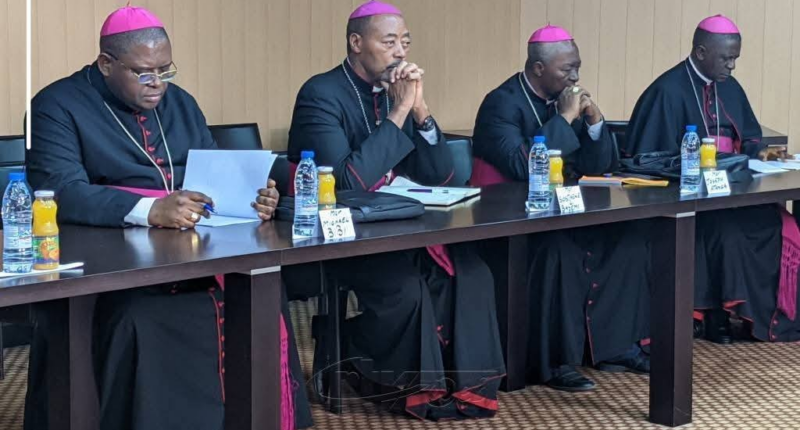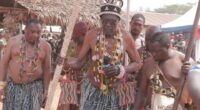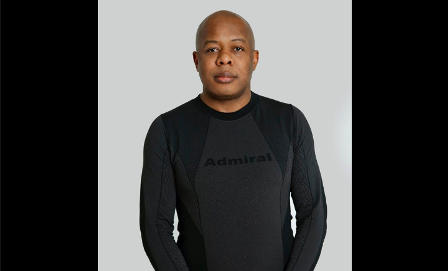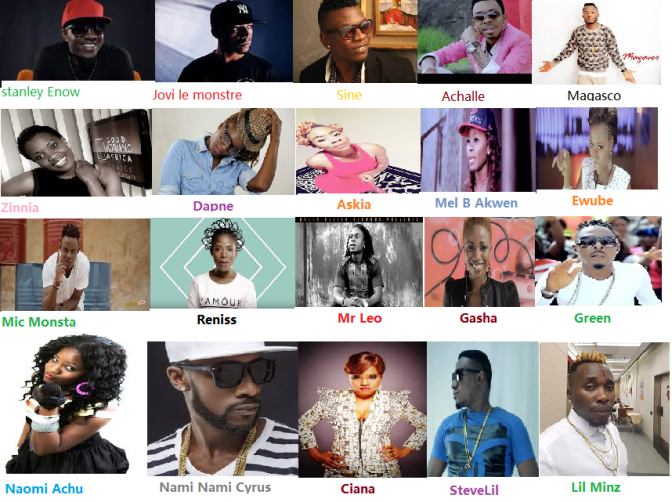Bishops at Etoudi: A Prophetic Voice Silenced or a Regime’s Desperate Plea for Legitimacy?
By Andre Momo
In the shadowy corridors of Cameroon’s power elite, where whispers of allegiance echo louder than cries for justice, a recent gathering at Etoudi Palace has ignited a firestorm of debate. Father Joseph Awoh, a courageous voice from within the Catholic Church, has boldly peeled back the layers of this controversial rendezvous between the nation’s bishops and Ferdinand Ngoh Ngoh, the Secretary General at the Presidency. In a heartfelt reflection shared on social media, Father Awoh doesn’t just question the meeting—he dissects it, exposing the raw nerves of a regime clinging to power after 43 years of rule under President Paul Biya. As elections loom like storm clouds over our fractured nation, Father Awoh’s words serve as a clarion call: Are our spiritual leaders being co-opted into a political charade, or are they unwittingly lending their moral weight to a system teetering on the edge?
Let’s rewind to the facts, as laid bare by Father Awoh. Over recent weeks, Ngoh Ngoh has been on a charm offensive, summoning groups of opinion leaders to Etoudi like a king demanding tribute. First came the traditional rulers from the West Region—minus one glaring absentee, a silent act of defiance that spoke volumes. Then the Fons from the Northwest, where several “heavyweights” opted out, their absence a subtle rebuke to the regime’s overtures. Imams followed suit, and now, the Catholic Bishops’ Standing Committee has joined the procession. Initial reports suggested the bishops had wisely declined, but alas, they showed up, stirring a mix of disappointment and intrigue among the faithful.
Father Awoh, a priest whose unwavering commitment to truth has made him a beacon for many Cameroonians weary of oppression, confesses his deep unease. “I had hoped our bishops would not go,” he writes, not out of rebellion, but discernment. And who can blame him? In a country where the Anglophone crisis has claimed thousands of lives, where economic despair festers, and where electoral integrity is a punchline, these invitations reek of manipulation. Why now, on the cusp of polls that could either entrench Biya’s dynasty or spark upheaval? Father Awoh posits a chilling theory: These meetings might be engineered to extract pledges of loyalty, to marshal community influencers into herding “their people” toward a predetermined vote. It’s a tactic as old as colonialism—divide, summon, and conquer.
The absences tell their own tale of resistance. Where was the Archbishop of Douala, that steadfast guardian of the flock who has fearlessly critiqued the government’s failings? The Bishop of Bafoussam, another vocal critic, was nowhere in sight. And the Bishop of Yagoua, known for speaking truth to power without flinching? Their no-shows, Father Awoh suggests, send a powerful message: We stand with the suffering masses, not the marble halls of Etoudi. In contrast, the bishops who attended have since emerged with explanations that ring hollow. Two spoke out—one via a statement, another in a press conference—claiming the agenda was simple: Pray and work for peace before, during, and after the elections.
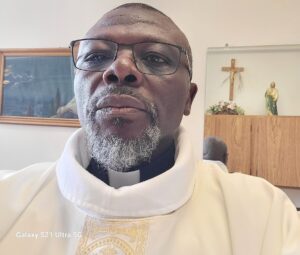
Peace? Ah, the Regime’s favorite buzzword, wielded like a shield against scrutiny. Father Awoh rightly probes deeper: Why this sudden obsession with peace? Is violence anticipated? If so, from whom—the brutal security forces infamous for crackdowns, or the disillusioned youth pushed to the brink? And how, pray tell, are bishops expected to enforce this peace? With rosaries and homilies alone? Do they possess magical tools to quell unrest, or is this just code for urging congregations to accept rigged results without protest? Father Awoh’s questions cut to the bone: Were the other groups—rulers, Fons, Imams—fed the same script? Does the government genuinely believe these leaders retain enough sway to steer votes, or is this a performative ritual to project unity amid crumbling legitimacy?
As a journalist who’s chronicled Cameroon’s struggles from the frontlines, I share Father Awoh’s wrestling. This isn’t mere skepticism; it’s a cry for accountability in a nation where the Church has historically been a moral compass. Remember the Episcopal Conference’s bold condemnation of governmental failures? It rekindled hope that the Church was reclaiming its prophetic mantle, echoing the likes of Archbishop Desmond Tutu in apartheid South Africa. Yet, seeing bishops file into Etoudi felt like a betrayal—a dilution of that fire into tepid prayers for “peace” that conveniently ignore the root causes of our turmoil: Corruption, marginalization, and a gerontocracy that refuses to yield.
Father Awoh’s reflection isn’t just personal; it’s a mirror for all Cameroonians. He pleads, “Una help me oh,” inviting collective discernment. So, let’s think through this together. Could these meetings be a veiled threat, a reminder that non-compliance invites reprisals? Or are they a sign of the regime’s desperation, knowing that without the Church’s tacit endorsement, their house of cards collapses? The bishops who attended owe us transparency: What was truly discussed behind those gilded doors? And to those who stayed away—bravo. Your silence roars louder than any palace proclamation.
In standing up, Father Joseph Awoh embodies the Church at its best: Not a lapdog of power, but a lion for the oppressed. As Cameroon hurtles toward elections, let his questions fuel our resolve. Peace without justice is surrender. It’s time for our leaders—spiritual and secular—to choose sides. The people are watching, and history will judge.
